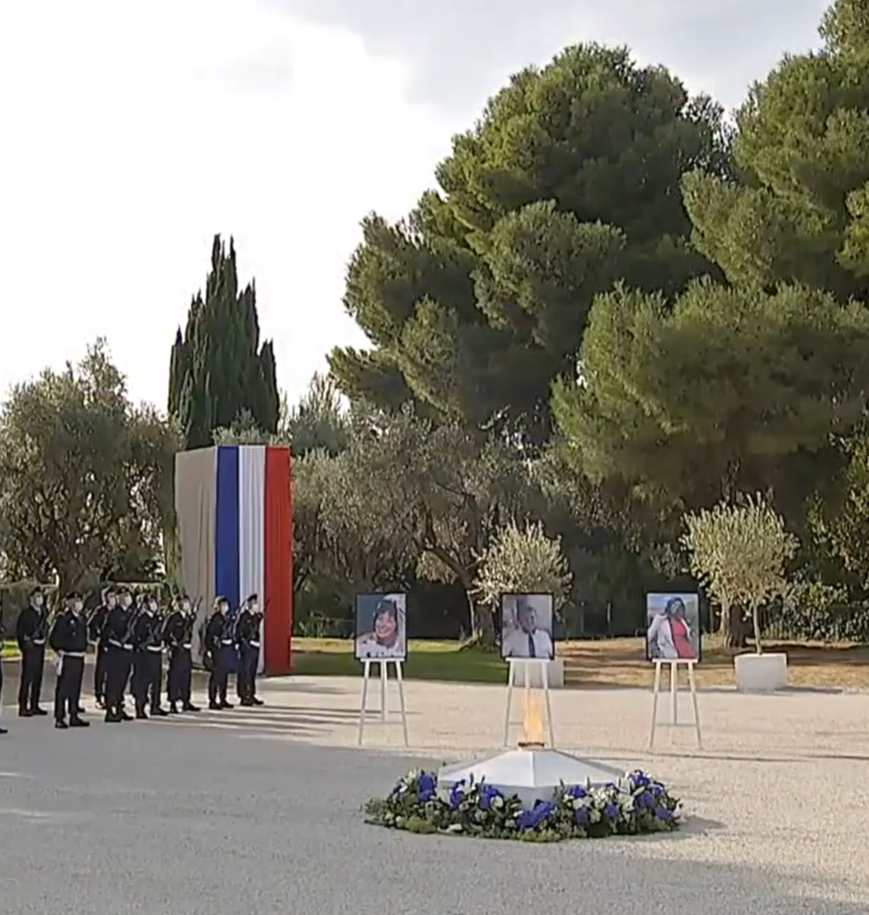[vc_row][vc_column][vc_single_image image=”115559″ img_size=”full” add_caption=”yes”][vc_column_text]In the last month, as the world has been preoccupied with the US elections and the ongoing ravages of the global pandemic, the people of France have turned on the news to learn of deadly terror attacks on their soil. Seemingly designed not just to murder and incite fear but as a direct attack on the core values of the French state.
In a Parisian suburb, Samuel Paty was beheaded by an extremist for teaching his students about the principle of free speech. In Nice, three people – Vincent Loques, Simone Barreto Silva and Nadine Devillers – were brutally murdered inside the ultimate sanctuary: a place of worship, the Notre-Dame basilica. Their ‘crime’? Attending church.
As ever in our interconnected world, a terror attack in one country has repercussions across the world and this has never been truer. Our choice of language and vocabulary when discussing such emotive issues can have untold consequences and when you combine the issues of national security, religion, extremism and politics, people rarely look beyond the headlines.
But it is unforgivable for national leaders to exploit the pain and anguish of others to promote their own world view and to shore up their own political standing. And beyond the pandemic that’s what we’ve seen. Rather than acknowledging the pain felt by the people of France and the fear that now lurks in many communities, not least French Muslims who now face a wave of hate for acts that had nothing to do with them, some national leaders are exploiting these horrendous events for their own benefit.
The actions of the presidents of Turkey and Pakistan to sow division and attack the French state have done little more than incite even more hate and anger. I’m choosing not to repeat their claims – as I don’t believe any good comes from dissecting their words – although others have.
There is not nor ever can be any excuse for murdering innocent people. This is all the more true in a democracy, such as France, where people have the legal right to protest, to challenge their politicians in court, to campaign against them and to write daily in national newspapers. We have legal ways to challenge the status-quo – violence is never a legitimate tool of protest and there can be no excuses made for its use.
Index’s raison d’etre is to defend our collective rights to free speech and free expression. That doesn’t mean that we don’t appreciate the tensions that exist between all of our basic human rights as outlined by the Universal Declaration of Human Rights.
There can be a tension for some between the right to free speech and the right of freedom of thought, conscience and religion. These tensions should be considered and discussed in every home, school and institution in every country. There should be a national conversation about how we find a balance as a society, we should use more words and have more debate about the type of world we want to leave in. And we should do all of this without the threat of violence.
We stand with the people of France, as they mourn the loss of Samuel Paty, Vincent Loques, Simone Barreto Silva and Nadine Devillers – may they rest in peace.
And we stand for the values that they represented.
[/vc_column_text][/vc_column][/vc_row][vc_row][vc_column][three_column_post title=”You may also like to read” category_id=”41669″][/vc_column][/vc_row]






